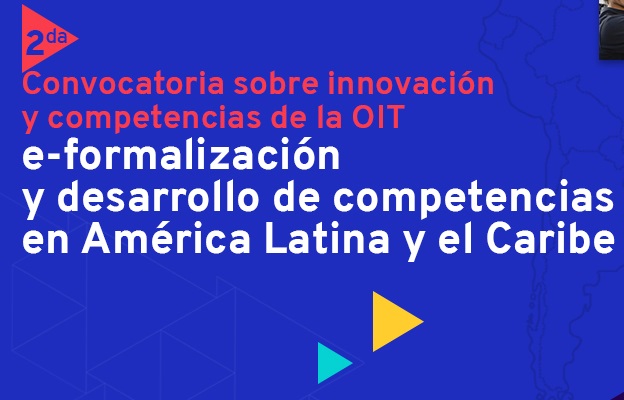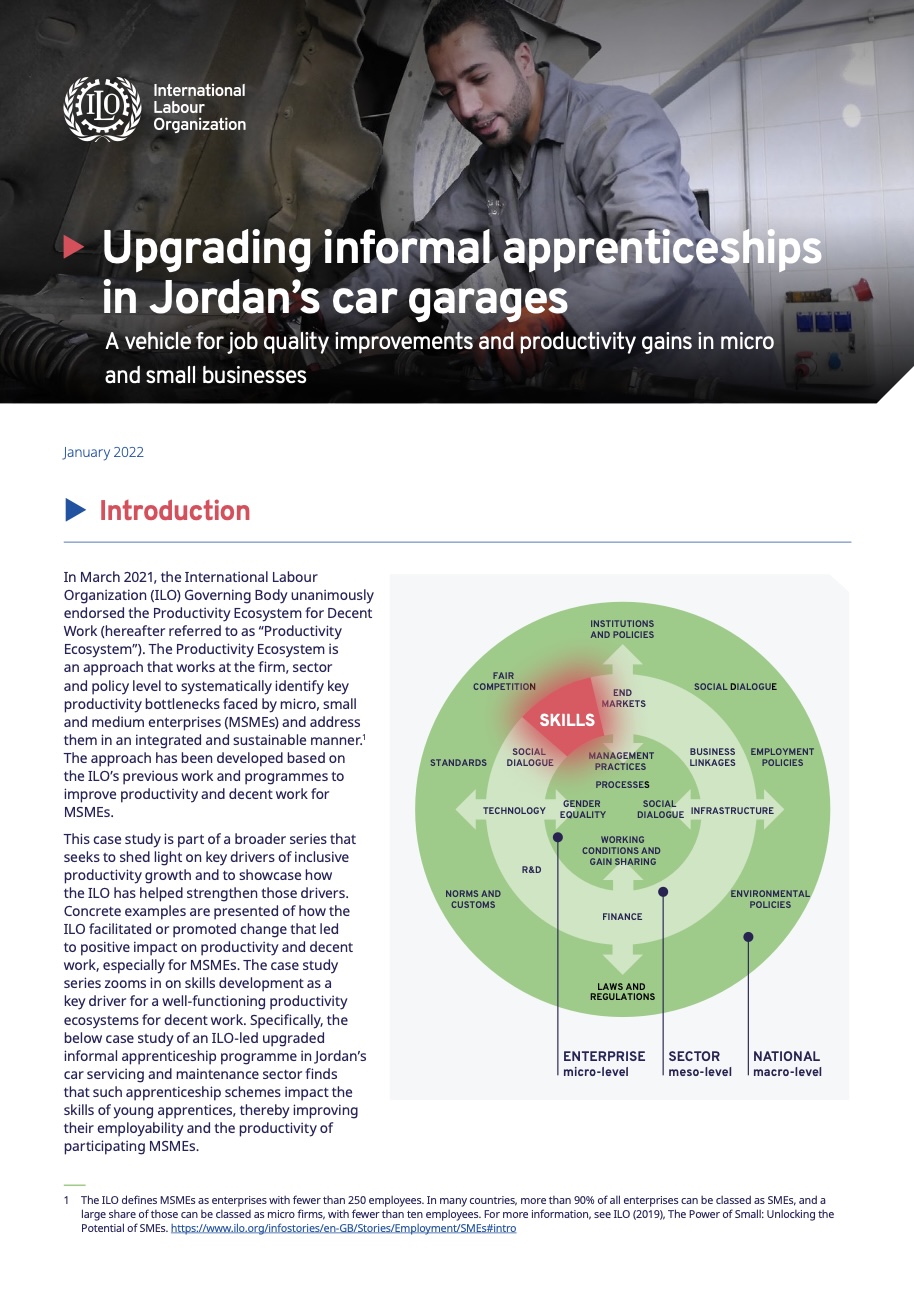Publicación
ILO announces winners of the 2nd ILO Skills Challenge Innovation Call on e-formality and skills development
Tipo:
URL externa
Tipo de contenido:
Noticia
Idioma:
Inglés
Otros idiomasfv:
--
Fuentes:
OIT
Autor:
--
Temas:
Competencias para la transición a la formalidad
Productos del conocimiento:
Materiales de promoción
Fecha de publicación:
10 Nov. 2021
Winning proposals offer innovative solutions for labour formalization in Latin America and the Caribbean through new technologies and skills development.
The International Labour Organization announced the two winning proposals of the 2nd Skills Challenge Innovation Call aimed at identifying solutions in the area of e-formality. The winning entries come from Ecuador and Brazil.
The call led to the identification of 60 innovative solutions in the areas of e-formality and skills development to contribute to the recovery of formal employment in the region after the massive job losses caused by COVID-19.
Five proposals, from Brazil, Ecuador and Chile, were shortlisted as finalists and invited to present their ideas to an international jury during a virtual event broadcasted live on 4 November 2021. Nearly 1,500 viewers from different regions of the world followed the event and voted for their favourite proposals.
After a rigorous evaluation process that took into account the jury's assessment and the public vote, the ILO selected the two winning proposals:
The International Labour Organization announced the two winning proposals of the 2nd Skills Challenge Innovation Call aimed at identifying solutions in the area of e-formality. The winning entries come from Ecuador and Brazil.
The call led to the identification of 60 innovative solutions in the areas of e-formality and skills development to contribute to the recovery of formal employment in the region after the massive job losses caused by COVID-19.
Five proposals, from Brazil, Ecuador and Chile, were shortlisted as finalists and invited to present their ideas to an international jury during a virtual event broadcasted live on 4 November 2021. Nearly 1,500 viewers from different regions of the world followed the event and voted for their favourite proposals.
After a rigorous evaluation process that took into account the jury's assessment and the public vote, the ILO selected the two winning proposals:
- First prize (USD 30,000): Encadenamientos productivos digitales, submitted by the Guayaquil Chamber of Industries (CIG) of Ecuador. This initiative consists of the development of a virtual platform (including a mobile app and a web app) to support Micro, Small and Medium enterprises (MSME) in managing their inventory, improving the quality of their products/services and achieving supply chain traceability. It also uses real-time industry analytics to integrate MSME suppliers from vulnerable segments with industry clusters and large companies in order to generate sustainable business relationships and shared value.
- Second prize (USD 20,000): #ElasporElas: Ferramenta de Educação Digital para o Empreendedorismo, led by Brazil's Serviço Social da Indústria (SESI). This digital education application aims at promoting the formalization of women in contexts of social vulnerability by supporting digital inclusion, formal entrepreneurship and financial independence of female victims of violence.
"The digital revolution, technological transformations and trends associated with the future of work, which have been accelerated by the pandemic, open an opportunity to adopt innovative solutions that support the insertion of economic units into formal value chains, through the use of new technologies," said Vinícius Pinheiro, Director of the ILO Office for Latin America and the Caribbean.
“This call for proposals on e-formality and skills development has shown the enormous potential for identifying innovative and effective solutions for formalization in the region, demonstrating the power of creativity and innovation to improve labour market outcomes”, he added.
"The ILO launched this 2nd Skills Challenge Innovation Call, recognizing the importance and active roles of individuals and organizations in driving innovation in skill systems and addressing pressing challenges around the informality in Latin America and the Caribbean. Addressing the issue of informality through skills development is not an easy task, but we are so grateful to have received innovative, creative and targeted solutions to overcome these difficulties. This really demonstrate how informality and skills development are interrelated and timely topics that affect the lives of many people and require the engagement of multiple stakeholders on the ground”, explained Srinivas Reddy, Chief of the ILO Skills and Employability Branch.
He added that “it is important that we see the Skills Challenge Innovation Call not as a one-off event, but rather as a first step to build a skills innovation ecosystem that supports great ideas and turn them into real and concrete solutions”.
Etiquetas:
Economía informal, Mejora de las competencias
Regiones:
América Latina y el Caribe
Países y territorios:
--
Grupos económicos:
--



